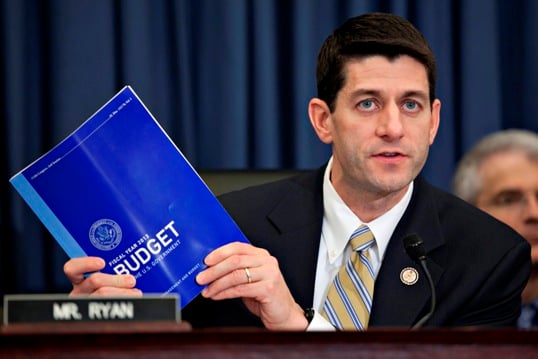Most financial advisers were already supporting Republican presidential candidate Mitt Romney before he named Rep. Paul Ryan as his running mate. But Saturday's announcement that Mr. Romney was placing the Wisconsin conservative on the ticket has triggered some new debate in the advisory community.
“I think the Ryan announcement will serve to more clearly define the Republican Party position and the Romney position in terms of the strength and power of government, and its attitude toward business,” said Clinton Struthers, owner of Struthers Financial Services.
Theodore Feight, owner of Creative Financial Design, said he has been “digesting [the Ryan announcement] all weekend.”
“I like people who can look at the numbers and can come up with a budget to accomplish what they want to do in a realistic manner, and then they tell you the truth,” he added. “I don't see that in most politicians. Neither the Republicans nor the Democrats have been willing to compromise on the budget, and even though the law says we have to have a federal budget, we haven't had one in four years.”
Sheryl Clark, owner of Sunrise Financial, stands boldly on the other end of the spectrum.
“I'm definitely not riding with the herd, because I'm quite liberal,” she said. “But from what I know, I would say [Mr. Ryan on the ticket] is probably going to help the Republicans, because he will appeal to anybody who has the idea that we should have smaller government.”
RELATED ITEM Advisers: Weigh in on Paul Ryan
According to the results of a survey conducted by the Financial Services Institute just prior to the Ryan announcement, 53% of nearly 2,400 advisers polled said they believe that Mr. Romney will win the presidential election.
When asked which candidate they would vote for if the election were held when the survey was conducted Aug. 8-10, 81% of respondents said they would vote for Mr. Romney, 15% said they would vote for President Barack Obama, and 4% selected “other.”
When the same question was asked as part of a February survey, Mr. Romney got the same 81% support, while Mr. Obama got 19%.
FSI president and chief executive Dale Brown steered clear of drawing conclusions from the research that might suggest a certain political slant, but he did say the survey results “are an indication that advisers are very politically astute and that they are paying attention to what's going on in the political arena, as well as policy issues and the economy.”
“There's no doubt that the events of the past four years since the financial crisis have solidified Washington as the center of the financial universe,” Mr. Brown added.
When asked to identify the biggest issue affecting their vote for president this year, 63% identified the economy and jobs, followed by the national debt at 21%.
On the issue of whether the upcoming elections will shift control of the U.S. Senate to the Republicans, 70% of respondents said that that will happen.
But on the question capital gains taxes, fully 95% of survey respondents believe that those taxes are going higher.
“This poll shows the economy and taxes are weighing heavily on the minds of advisers and in the planning they do for their clients,” Mr. Brown said. “They are bracing themselves and their clients for a stagnant economy and an increase in capital gains taxes.”







